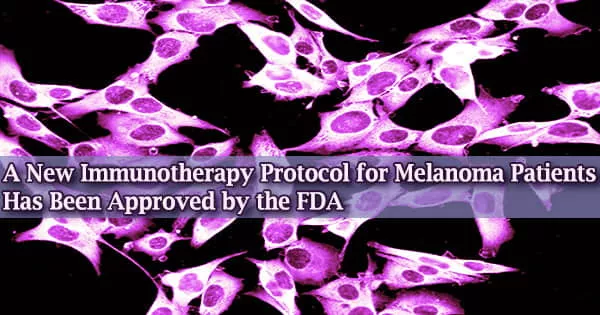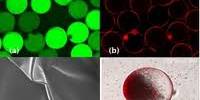A unique medication has been authorized by the U.S. Food and Drug Administration (FDA) for patients with metastatic or incurable melanoma, an aggressive form of skin cancer. Two immunotherapy drugs, relatlimab (anti-LAG-3) and nivolumab (anti-PD-1), are combined in the treatment, which was created based on original research performed at the Johns Hopkins Kimmel Cancer Center.
In a large, multi-center clinical trial, relatlimab significantly delayed time to cancer progression compared to nivolumab alone. The New England Journal of Medicine released the study’s findings, known as RELATIVITY-047, on January 6, 2022.
The study’s co-author and associate professor of oncology at the Bloomberg Kimmel Institute for Cancer Immunotherapy and Johns Hopkins Kimmel Cancer Center, Evan J. Lipson, M.D., presented preliminary results at the American Society of Clinical Oncology (ASCO) annual meeting in 2021.
“The FDA’s approval of this novel combination therapy is an exciting development for all of us in the melanoma community,” says Dr. Lipson. “Our collaborative research with scientists and physicians worldwide has demonstrated that targeting LAG-3 effectively activates the immune system against cancer and has established the LAG-3 pathway as the third immune checkpoint pathway in history, after CTLA-4 and PD-1, for which blockade has a clinical benefit.”
Immunotherapy using checkpoint inhibitors functions by preventing particular proteins on cell surfaces that aid cancer in evading the body’s immune system. By blocking these checkpoints, the immune system is better able to combat and get rid of cancer.
714 patients with advanced, previously untreated melanoma were randomly assigned to receive either nivolumab alone or nivolumab + relatlimab in the RELATIVITY-047 study.
The FDA’s approval of this novel combination therapy is an exciting development for all of us in the melanoma community. Our collaborative research with scientists and physicians worldwide has demonstrated that targeting LAG-3 effectively activates the immune system against cancer and has established the LAG-3 pathway as the third immune checkpoint pathway in history, after CTLA-4 and PD-1, for which blockade has a clinical benefit.
Evan J. Lipson
Individuals who got the combination therapy experienced a median progression-free survival of 10.2 months, which is much longer than the 4.6 months found in patients who received nivolumab alone.
Patients getting combination therapy had a progression-free survival rate of 48 percent at one year compared to those receiving nivolumab alone, which was only 37 percent. The FDA has approved nivolumab for the treatment of melanoma and a number of other cancer types. It works by targeting a protein called PD-1.
Relatlimab prevents the inhibitory protein LAG-3 from signaling, reactivating the anti-tumor function of immune system T cells. Researchers from the Bloomberg-Kimmel Institute were the first to co-discover the anti-tumor benefits of LAG-3 blocking.
In 2010, Johns Hopkins researchers Suzanne L. Topalian, M.D., professor of surgery and oncology, and Drew M. Pardoll, M.D., Ph.D., director of the BloombergKimmel Institute for Cancer Immunotherapy and co-director of the Cancer Immunology Program at the Johns Hopkins Kimmel Cancer Center, received funding from the Melanoma Research Alliance to conduct preclinical studies of the combination therapy in mice.
The Bristol-Myers Squibb Co. funded the RELATIVITY-047 trial. Dr. Lipson serves on an advisory board and is a paid consultant. Dr. Pardoll is supported by research grants. Dr. Topalian is a paid consultant who also receives funding for his research. A patent on the blocking of LAG-3 for the treatment of cancer was created by Dr. Pardoll.
Dr. Pardoll and the University are entitled to royalties linked to the technology cited in the study and covered in this publication, per a license agreement between BMS and the Johns Hopkins University. According to its conflict-of-interest procedures, the Johns Hopkins University has evaluated and approved these agreements.
















